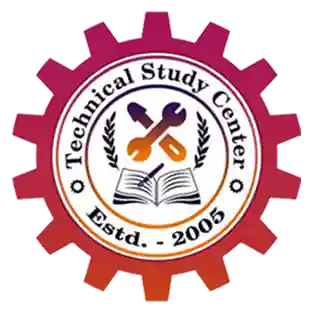Welding is not just about joining metal pieces together; it is a skill that builds the foundation of industries like construction, manufacturing, shipbuilding, and even aerospace. A trained welder is always in demand because strong and precise welding is required in everything from bridges and railways to cars and pipelines.
At Technical Study Center, we help students learn the science and skill of welding with expert guidance, practical training, and industry-relevant techniques. Whether you are preparing for ITI exams, government jobs, or private sector opportunities, our focused study plans and hands-on training ensure you become a skilled professional.
Uncommon Learning Strategies for Future Welders
Many students believe welding is just about using a torch and metal rods, but true mastery comes from deeper knowledge and better techniques. We train students not only to pass exams but to become industry-ready professionals with unique learning methods.
1. Learning the Science Behind Welding
Most ITI students focus only on practical welding, but understanding the science behind it makes a welder more skilled.
- Metal Properties Matter – Different metals expand, contract, and conduct heat differently. Knowing this prevents cracks, weak joints, and welding defects.
- Heat Control is the Key – If the heat is too high, it burns the metal; if too low, the weld is weak. Learning how to adjust flame and arc is essential.
- Shielding Gases and Their Uses – Most students don’t realize that the right choice of shielding gas (like argon or CO₂) can make welding smoother and stronger.
Understanding these concepts helps students avoid mistakes and create perfect, long-lasting welds.
2. Mastering Different Types of Welding
Many ITI students focus only on basic arc welding, but industries require multiple welding techniques. We teach:
- MIG Welding (Metal Inert Gas) – Used in automobile and aerospace industries.
- TIG Welding (Tungsten Inert Gas) – Needed for fine work in stainless steel and aluminum.
- Gas Welding & Brazing – Important for plumbing, pipelines, and repairing small parts.
- Underwater Welding Basics – A high-skill area needed in shipbuilding and marine industries.
With expertise in different methods, students can explore more career opportunities in various industries.
3. Cracking ITI Exams & Government Job Tests
Many government departments and PSUs like Railways, ONGC, BHEL, and ISRO hire welders through ITI exams and skill tests. We prepare students with:
- Exam-Focused Study Plans – Covering theory, safety measures, and practical applications.
- Mock Tests & Time Management Training – Practicing with real exam patterns to improve speed and accuracy.
- Shortcut Techniques for Welding Calculations – Learning quick formulas for metal thickness, current settings, and welding speed.
With this structured preparation, students can easily clear ITI exams and secure government jobs.
4. Hands-On Training with Real-World Welding Projects
Instead of just practicing on small metal pieces, we simulate real industry conditions:
- Welding Large Structures – Practicing on pipes, beams, and metal sheets like in real industries.
- Fixing Welding Defects – Learning how to repair cracks, porosity, and uneven joints.
- Blueprint Reading & Measurement Skills – Understanding technical drawings and precise welding techniques.
By training with actual industry projects, students become confident and job-ready.
5. Learning Modern Welding with Automation & Robotics
The future of welding includes automation and robotic welding systems. We introduce students to:
- CNC Welding Machines – Understanding how computerized machines make welding faster and more precise.
- Robotic Welding Basics – Learning about how industries use robots for mass production welding.
- 3D Printing & Metal Fabrication – A new field where welding meets advanced technology.
This knowledge gives students an edge in modern industries and future technologies.
6. Developing Professionalism & Workplace Readiness
A skilled welder also needs good workplace habits. We teach:
- Workplace Safety & Fire Prevention – Welding involves high temperatures, sparks, and gas cylinders. Learning safety rules saves lives.
- Teamwork & Communication Skills – Welders work with engineers, machine operators, and supervisors. Learning how to follow instructions and discuss work clearly is important.
- Tool Maintenance & Efficiency – A professional welder keeps tools clean, calibrated, and in good condition to avoid errors and delays.
With these skills, students become not just welders but valued professionals.
